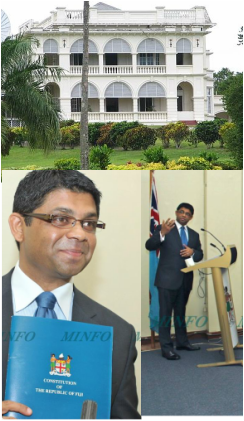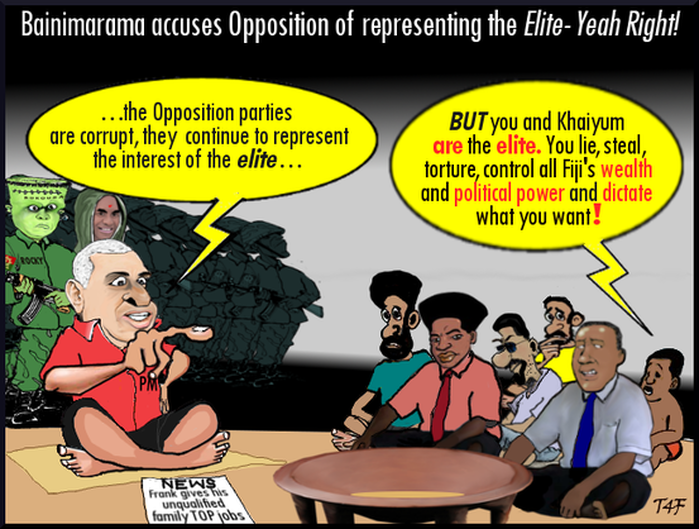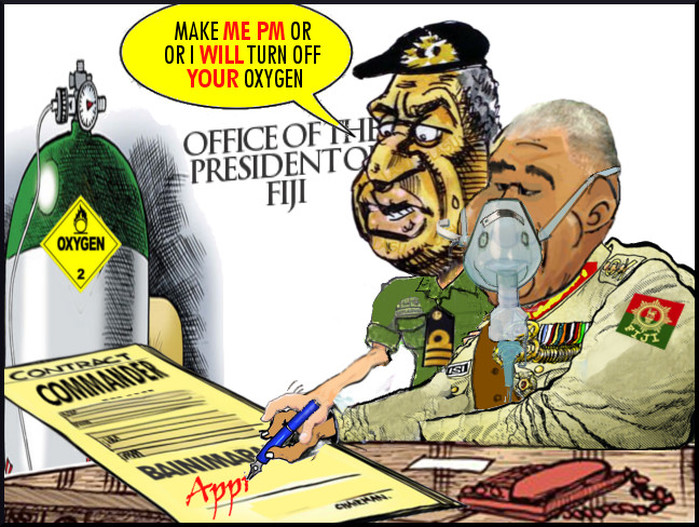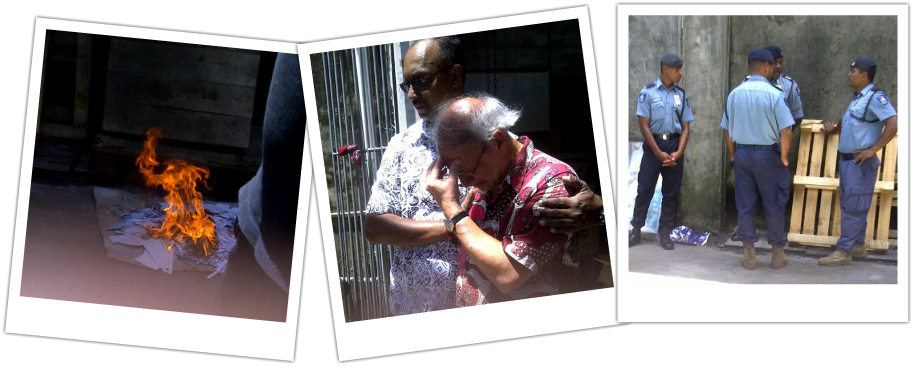"For so long we have had chiefs, military leaders and the hoi poloi of Fiji bidding for the position of President but now that the job is purely ceremonial, surely the hoi poloi can step aside to let an ordinary but capable citizen of Fiji become President? Especially someone who is not associated, even subtly, with any of the current political parties, including the government, so that the people can look forward to absolute fairness and impartiality from their next President. People should put names forward of remarkable citizens who have done much for Fiji without accolades and fanfare or for selfish reasons. After all, next time round, parliament will decide who shall be President, not the elites. People should not let the elites (whoever they are) manipulate and therefore ambush the ordinary people’s duty to elect their President from among their own ranks in light of the constitutional phrase…'We the People of Fiji…’ "

Fijileaks 'Bagehot'
It is time to look at the role of the Fijian President in the 2013 Constitution compared to the 1997 Constitution to think about how ‘we the people of Fiji’ have the duty to decide who will be elected to that position.
While thinking about it we should realize that the position of the President in the 2013 Constitution is now only ceremonial. That means, basically, opening Parliament, cutting ribbons, accepting credentials from diplomats of obscure countries with unpronounceable names, kissing babies and, perhaps as a necessary obligation, opening ablution blocks in rural areas. Admirable duties these are of course but, sadly, no longer very significant in the body politic. Particularly since the President can now only outline the policies and programmes of the government at the opening of each annual session of parliament (section 81 (4) of the 2013 Constitution), a provision missing from the 1997 Constitution.
Gone is the robust and substantive role that the President enjoyed under the 1997 Constitution. Gone is the proper and respectable position as head of state with important powers to take care of all the people of Fiji and, importantly, as the substantive commander-in-chief of the military. The President’s role, as far as the RFMF is concerned under section 81 (3) of the 2013 Constitution, is now only ceremonial. On the other hand, under section 87 of the 1997 Constitution, the President was actually the Commander-in-Chief of the military forces. With such statutory demotion, it is not really clear who can now actually command the military in a meaningful and statesman like way since the job of the Commander of the RFMF under the 2013 Constitution is only to exercise military executive command of the forces, being mainly in appointments, removals and disciplinary actions. This ‘executive’ job was also provided to the Commander in the 1997 Constitution but with two significant differences: in that Constitution, the Commander-in-Chief was the President who held his position as a substantive officer and therefore could meaningfully command the military; and any ‘executive’ command of the Commander could only be carried out subject to the control of the relevant Minister. Both clauses are now gone.
The inclusion of section 131 (2) in the 2013 Constitution (which came from section 94 (3) of the 1990 Constitution), makes the current position of the military forces quite interesting. By reading all the relevant sections together in the three constitutions of Fiji, 1990, 1997 and 2013, we can spot the vacuum created by making the position of the President merely ceremonial in regards to the RFMF. In trying to eliminate the problem created by Qarase for Bainimarama, the baby has been thrown out with the bathwater. Now no one really ultimately commands the military- certainly not the President and, it appears, also not the Commander, and not the Minister. In fact the Commander has a slight command edge over the other two officers of the state.
But back to the President: let Fijians choose a humble farmer or simple worker to be the President of Fiji. Clearly the person will need a certain level of literacy to be able to communicate with all the people of Fiji, especially when opening parliament, but we have so many highly intelligent people who have participated actively in public life, have sacrificed their personal needs for the public good and, yet, may not be formally educated. For so long we have had chiefs, military leaders and the hoi poloi of Fiji bidding for the position of President but now that the job is purely ceremonial, surely the hoi poloi can step aside to let an ordinary but capable citizen of Fiji become President? Especially someone who is not associated, even subtly, with any of the current political parties, including the government, so that the people can look forward to absolute fairness and impartiality from their next President.
People should put names forward of remarkable citizens who have done much for Fiji without accolades and fanfare or for selfish reasons. After all, next time round, parliament will decide who shall be President, not the elites. People should not let the elites (whoever they are) manipulate and therefore ambush the ordinary people’s duty to elect their President from among their own ranks in light of the constitutional phrase…’We the People of Fiji…'




